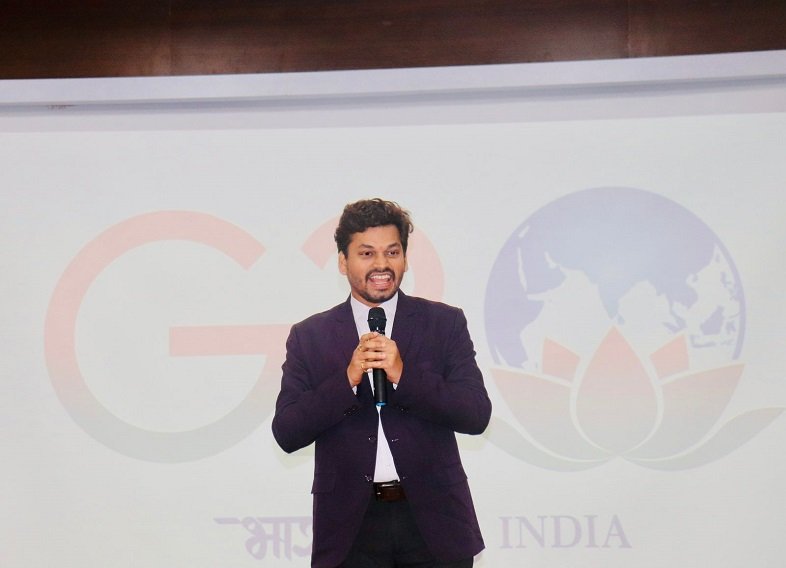
In the fast-paced world of events and conferences, every detail matters. From awe-inspiring designs to the lineup of distinguished speakers, organizers strive to create an unforgettable experience for attendees. However, there is an alarming trend that cannot be ignored any longer – the careless mishandling of names. These blunders may seem insignificant, but they can leave a lasting negative impact on individuals and their reputations. This article serves as a wake-up call to all designers and organizers, urging them to prioritize attention to detail and take responsibility for their mistakes.
A name is more than a combination of letters; it carries the essence of an individual’s identity and accomplishments. Mispronouncing or misspelling a name not only shows disrespect but can also undermine a person’s achievements. For instance, calling Dr. Pratik Rajan Mungekar as “Dr. PratEEk RaNjan MunJekar” is not just a typo; it dismisses the years of hard work and dedication that led to earning that title.
Imagine the embarrassment and frustration of being continuously subjected to such mistakes in a professional setting. Individuals who have worked tirelessly to establish their names deserve recognition and respect. Moreover, these blunders may cause confusion and misunderstandings among attendees, leading to a less-than-ideal event experience.
As designers and organizers, it is your duty to meticulously check all information before publication or presentation. Names should be given the utmost attention and care. Ensure proper verification of spellings and pronunciations, consult with the individuals involved if necessary, and make corrections promptly. By doing so, you show professionalism, empathy, and respect for the awardees, speakers, guests, and all participants involved.
Careless mistakes with names can also perpetuate a lack of inclusivity and diversity. Often, individuals from diverse backgrounds or international origins face greater challenges with name recognition. By making such mistakes, you unintentionally contribute to a culture that marginalizes these individuals, hindering efforts to build an inclusive and welcoming environment.
To rectify this issue, consider implementing the following measures:
Develop a standardized process for verifying names and pronunciation, involving the individuals themselves if needed.
Conduct thorough reviews of all event materials and double-check for errors.
Educate your team on the significance of getting names right and the impact it can have on individuals.
Encourage open communication with awardees, speakers, and guests to ensure their comfort and trust in your event’s execution.
Conclusion:
In the world of design and event organizing, attention to detail is key to success. Careless mistakes with names not only reflect poorly on the event but also harm the individuals involved. By acknowledging the importance of a name, taking responsibility for errors, and actively working towards improvement, designers and organizers can create a positive, inclusive, and respectful atmosphere. Let’s strive to elevate our events by showing the utmost respect for every individual’s identity and achievements.

